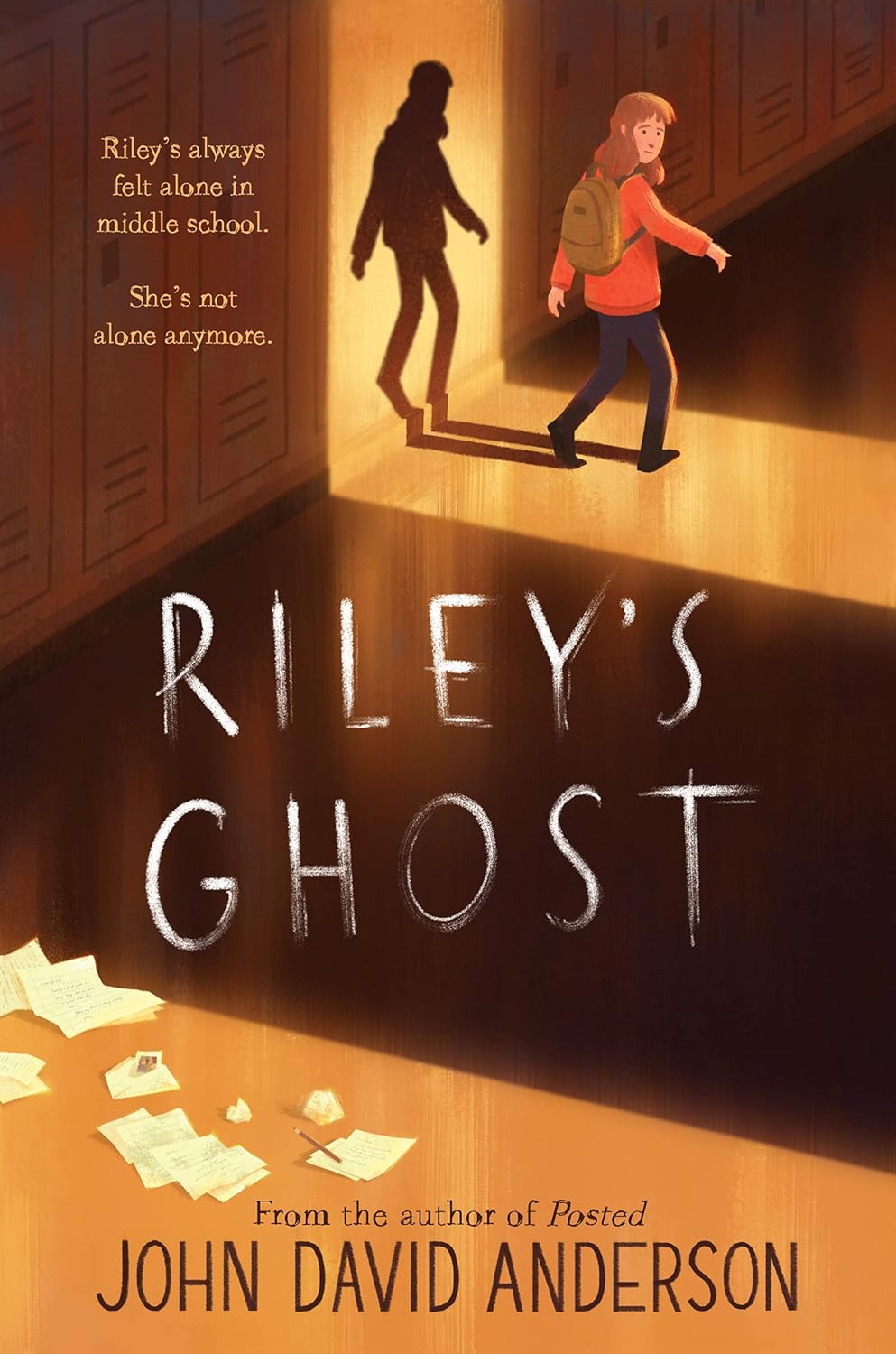Riley’s Ghost is an enchanting tale that was listed as “SCARY” for middle-grade readers at my local library. As an author, I’ve taken an interest in middle-grade fiction. I’ve written a Christmas and have plans pending for a somewhat scary middle-grade novel in the future.
Riley’s Ghost was a great choice as a writing sample in the genre because it is so well done. Author John David Anderson goes deep into the character’s head as she deals with a scary night, recalls memories both good and bad, and learns a lot about herself. I enjoyed the tale and the character, but I was very impressed with the writing skills. Anderson also throws in some words to challenge the young readers who pick up this book and won’t be able to put it down until Riley’s nightmare of a night comes to an end.

In this blog, I offer a different type of book review — one that’s combined with vocabulary building. Included below are a few interesting words I found in Riley’s Ghost. I love that a book written for middle-grade readers included words that challenged me!
The definitions here are for just a few words from Riley’s Ghost that I found interesting:
sarcophagus: noun — särˈkäfəɡəs — a stone coffin, typically adorned with a sculpture or inscription and associated with the ancient civilizations of Egypt, Rome, and Greece. — ORIGIN: late Middle English: via Latin from Greek sarkophagos‘flesh-consuming’, from sarx, sark-‘flesh’ + -phagos‘-eating’.
From Riley’s Ghost:
“What had he called it? A vessel? It sounded like an old word, full of antiquity and ritual. It reminded Riley of a museum she’d gone to once that had a sarcophagus of some pharaoh on display; scattered around it were jars of limestone that supposedly held the dead man’s lungs and liver and stomach. Vessels.”
…
sharbade: noun. Sharbade is a game played on specialized scooters and is a mixture of hockey, soccer, and basketball. The name is derived from Shoulder Arm and Back Development- the parts of the body put to heaviest use in playing the game. Participants use only their hands and arms for propulsion of a scooter on which they lie while playing the game. A basketball court is typically used as the playing field. Each team has seven players on the floor at one time and another seven on the bench. A maximum of 15 players can be on a team.
(I had to get this definition on the internet from Utah Valley University’s information on its intramural sports program page.)
From Riley’s Ghost:
“Of course Riley might have administered a few of those bruises herself. Like the time she rammed into Caroline Silton so hard in sharbade that she knocked the girl off her scooter and then accidentally—because it was an accident—rolled over Caroline’s hand, sending her to the nurse.”
…
tchotchkey: noun — tchotchke | ˈCHɒCHkə, ˈCHäCHkə | (also tsatske) — 1 North American English a small object that is decorative rather than strictly functional; a trinket. 2 US English a pretty girl or woman. — Origin: 1960s Yiddish
From Riley’s Ghost:
“The librarian’s desk was much the same—perfect blocks of sticky notes and a tidy wire cup of sharp pencils punctuated by an odd assortment of tchotchkes accumulated from Mrs. Grissolm’s summer vacations: a conch from Costa Rica, a surfing Santa Claus from Hawaii, a miniature Big Ben that chimes out on the hour. Order and chaos. Just like life.”
…
zerbert: noun — 1 (informal) The sound made when someone places the mouth against skin and blows, imitative of the sound of flatulence. — Synonym: raspberry
From Riley’s Ghost:
“If the offense was minor—thrown broccoli, a scribbled wall, a dirty look—he would gobble her up in his arms and say, ‘You little monster’ before commencing to zerbert her into submission or swing her upside down by her ankles.”
…
Definitions are typically from the dictionary that comes with my Mac or The New Oxford American Dictionary.
“The word is only a representation of the meaning; even at its best, writing almost always falls short of full meaning. Given that, why in God’s name would you want to make things worse by choosing a word which is only cousin to the one you really wanted to use?” ― Stephen King, On Writing: A Memoir of the Craft.

